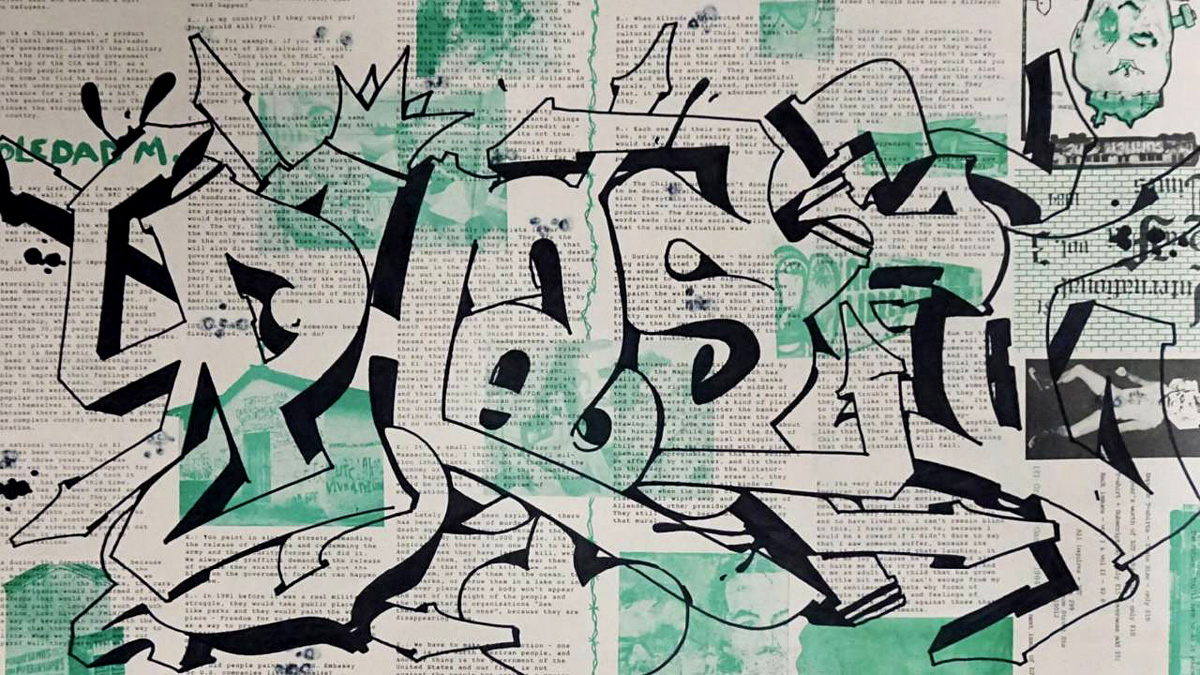- No products in the cart.
Myth-Conceptions of a Culture Facts PT.1 by Style Writer P.H.A.S.E. 2

In a thought-provoking 2 part series, Style Writer P.H.A.S.E. 2, a prominent figure in B-boy and B-girl culture, delves into the myths and misconceptions surrounding this vibrant community. Buckle up for a ride through the facts, as P.H.A.S.E. 2 breaks down the terminology, history, and societal perceptions tied to this artistic movement. Firstly, P.H.A.S.E. 2 sets the record straight by asserting that what they do isn’t termed graffiti; it’s referred to as “writing.” The term graffiti, originating from Italian, implies a scribbling on ancient walls, and it doesn’t adequately capture the essence of this multifaceted culture. P.H.A.S.E. 2 makes it clear that writers have always identified as “writers” engaged in “writing,” reflecting their expressive nature with the English language tailored to their preferences. Better known as Style Writing, Aerosol Art and/or Street Art, these terms are more appropriate for the art-form.
Breaking Down the Term “Graffiti”
Origin: Graffiti, derived from the Italian word “graffiare” (to scratch), initially referred to scribblings on ancient walls, such as those in Pompeii. Current Perception: The common use of “graffiti” in relation to aerosol culture has somewhat distorted the original meaning. Style writer P.H.A.S.E. 2 emphasizes that writers coined the terms and descriptions for their activities, letter styles, and more. This self-expression was innate and organic, reflecting the everyday nature of their endeavors. The introduction of the term “graffiti” by media articles later stigmatized the culture and sparked controversy. Media thrives on controversy, while truths are subdued.

Societal Response and Appropriation
Media Influence: The media’s negative portrayal of the culture, as seen in their use of the term “graffiti,” perpetuated misconceptions and hindered a true understanding. Cultural Ownership: Style Writer P.H.A.S.E. 2stresses the importance of recognizing that B-boy and B-girl culture is a creation of the community itself. Appropriation from external forces, particularly those historically disinterested or adversarial, isn’t conducive to an accurate representation. We can’t understand the true perspective of the lion when it’s told by the hunter.
Cultural Responsibility
Media Influence on Perception: The community should be wary of accepting media rhetoric without critical examination. Blindly adhering to terms imposed by external sources hampers the culture’s autonomy and self-definition. Ownership and Legacy: B-boy and B-girl culture is a collective creation with its unique language, history, and practices. Preserving its integrity requires an awareness of its origins and a refusal to relinquish control to entities lacking genuine concern or understanding.
Style writer P.H.A.S.E. 2’s insights challenge the status quo, urging the community to reclaim its narrative and reject terms imposed from external sources. In the journey of cultural evolution, understanding and preserving one’s roots are paramount, ensuring that the legacy remains true to its essence. We have to maintain ownership of the art-form in order to ensure cultural integrity.
Artist Contact Info:
P.H.A.S.E. 2 | Profile
B-Boys & B-Girls stand up… Keep your mobile device locked to Big Noise Radio for authentic Style Writing culture from P.H.A.S.E. 2!
Article: Big Noise
Editor: Noiseman
Image: P.H.A.S.E. 2
Written by noiseman on









